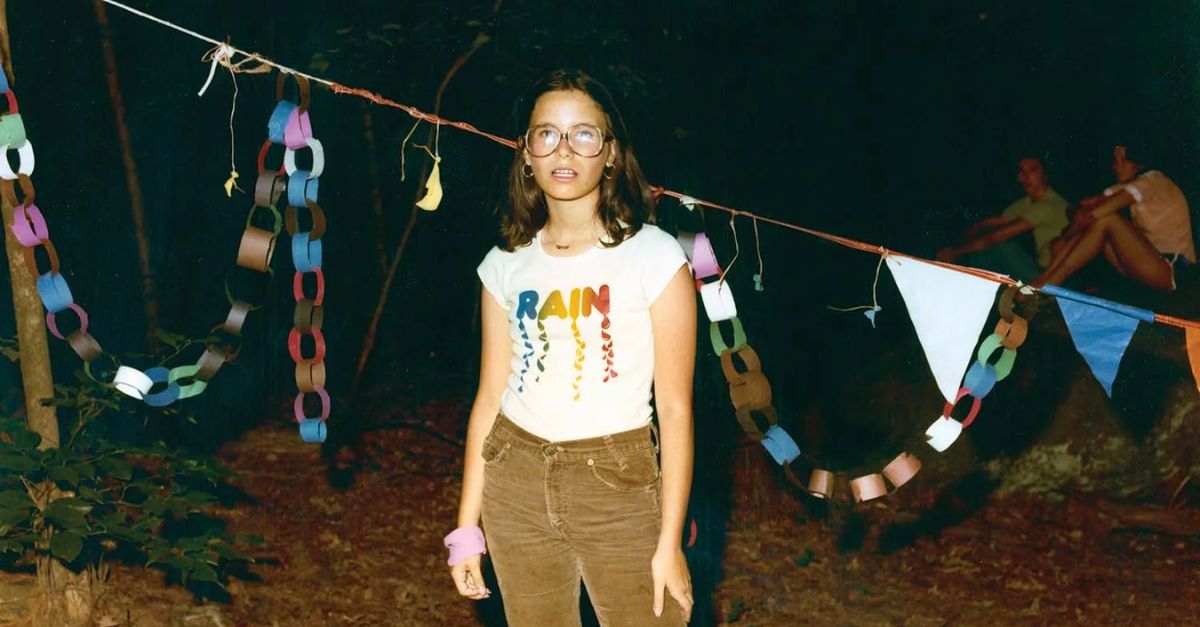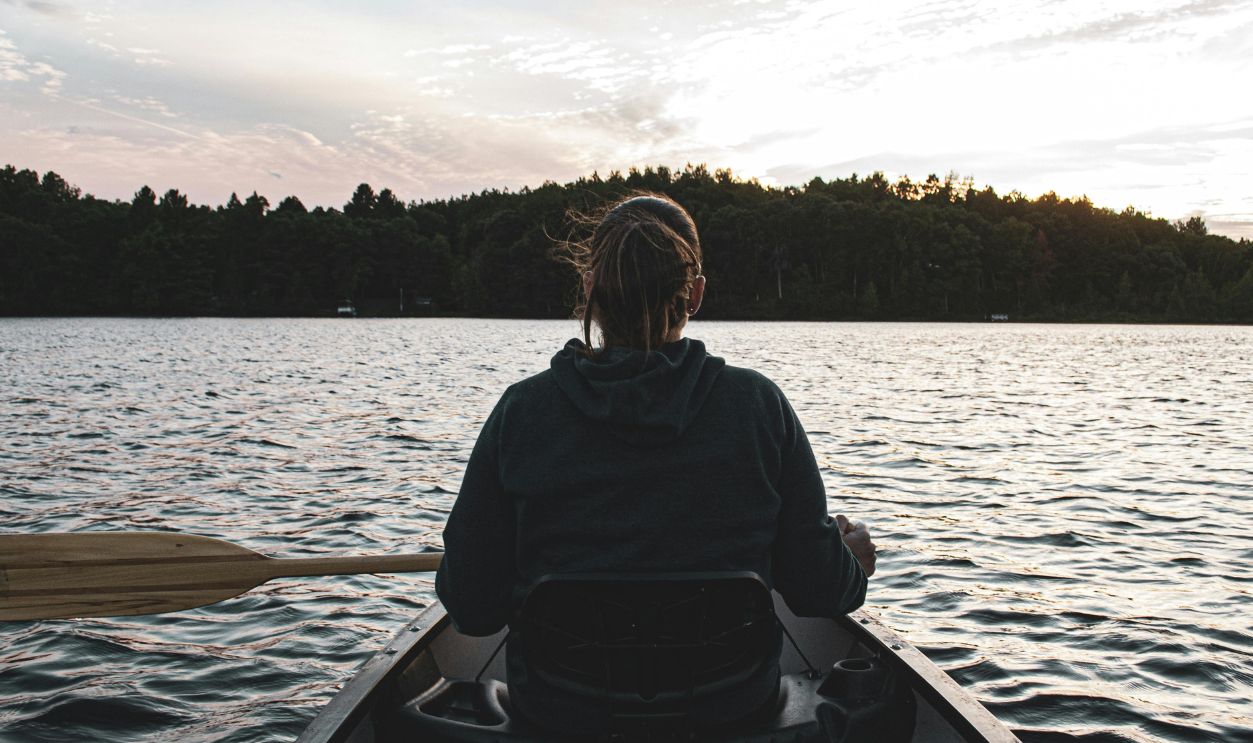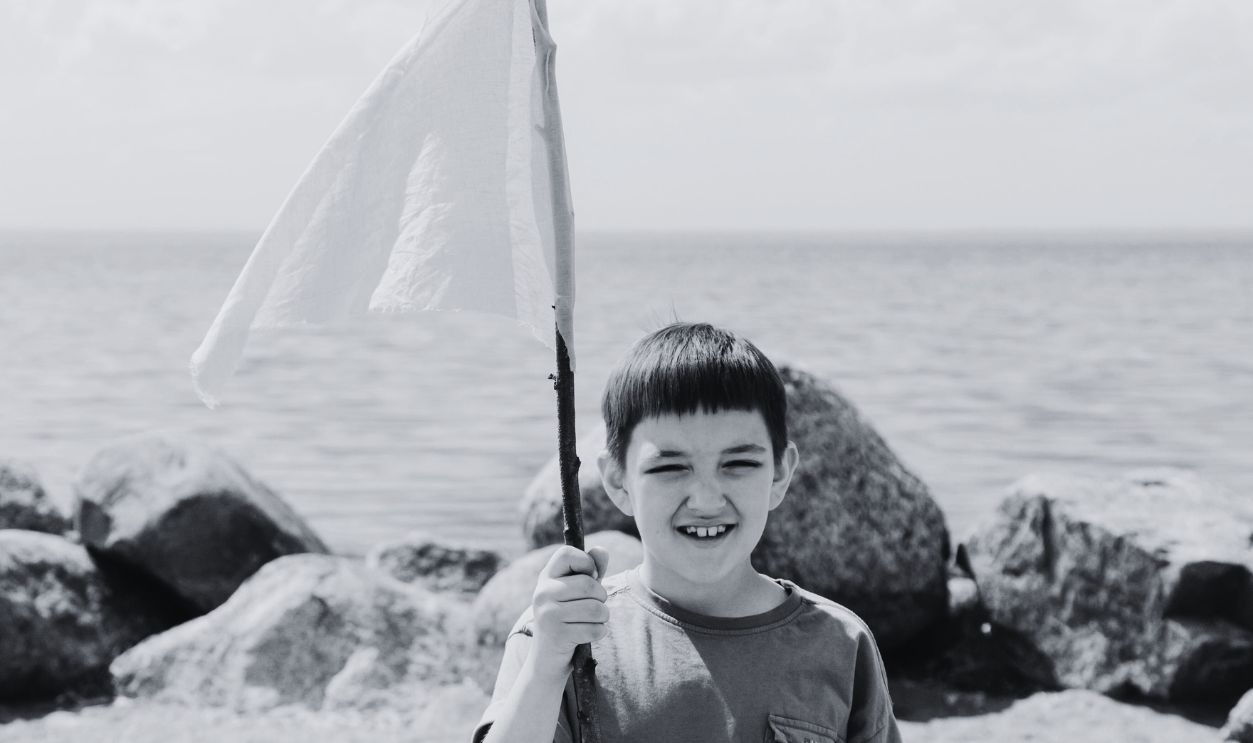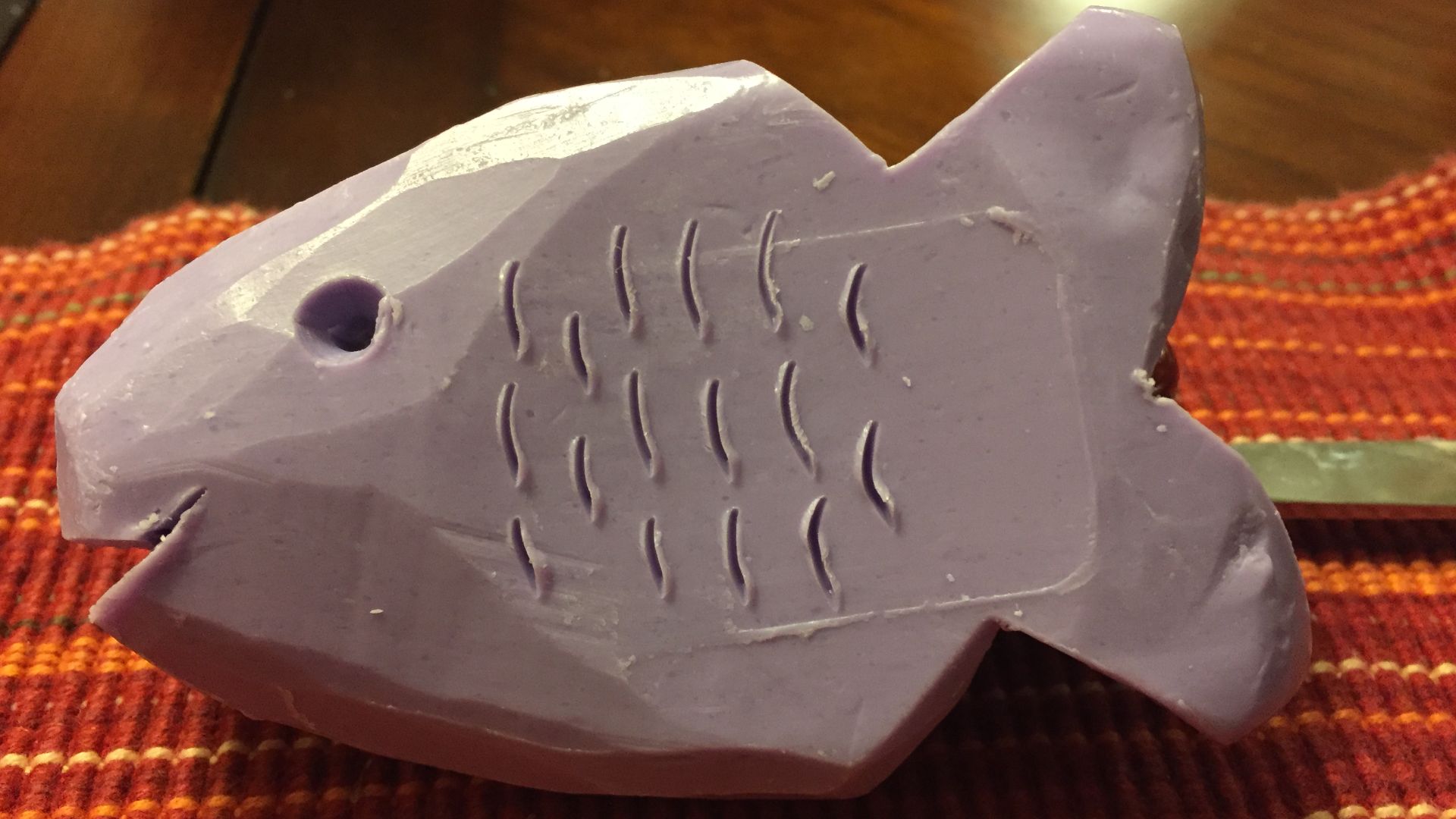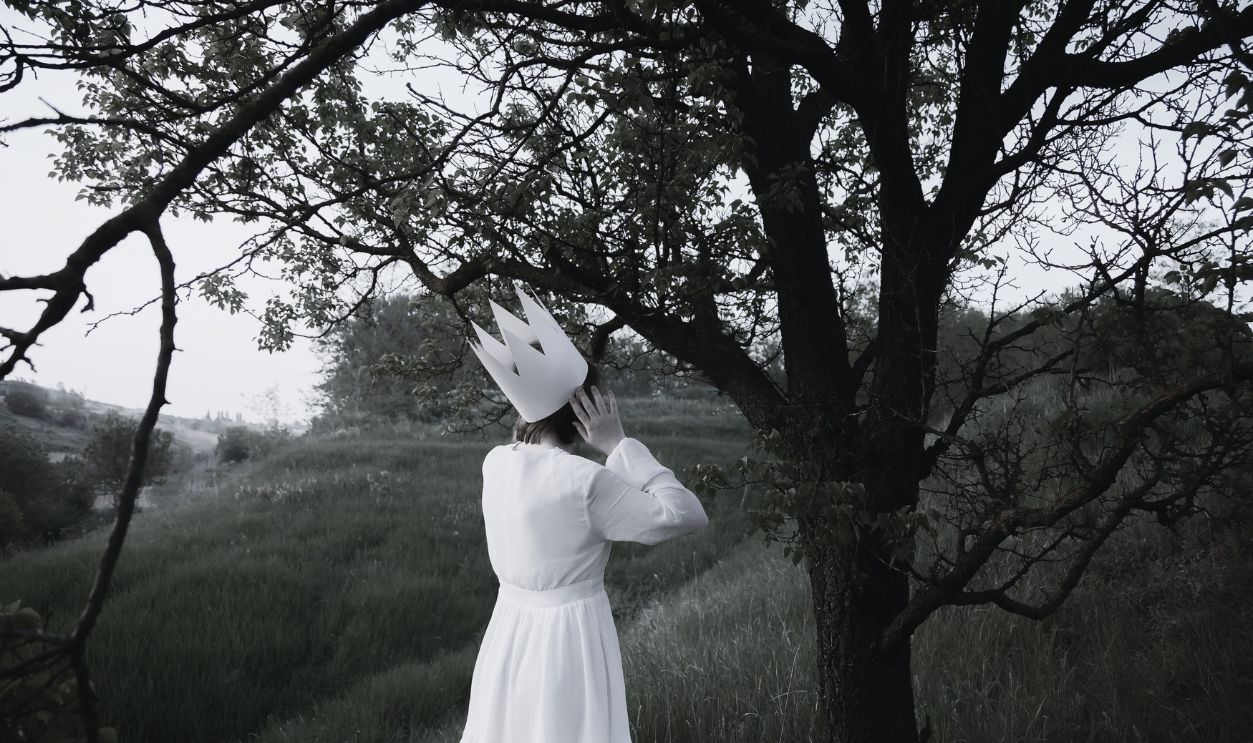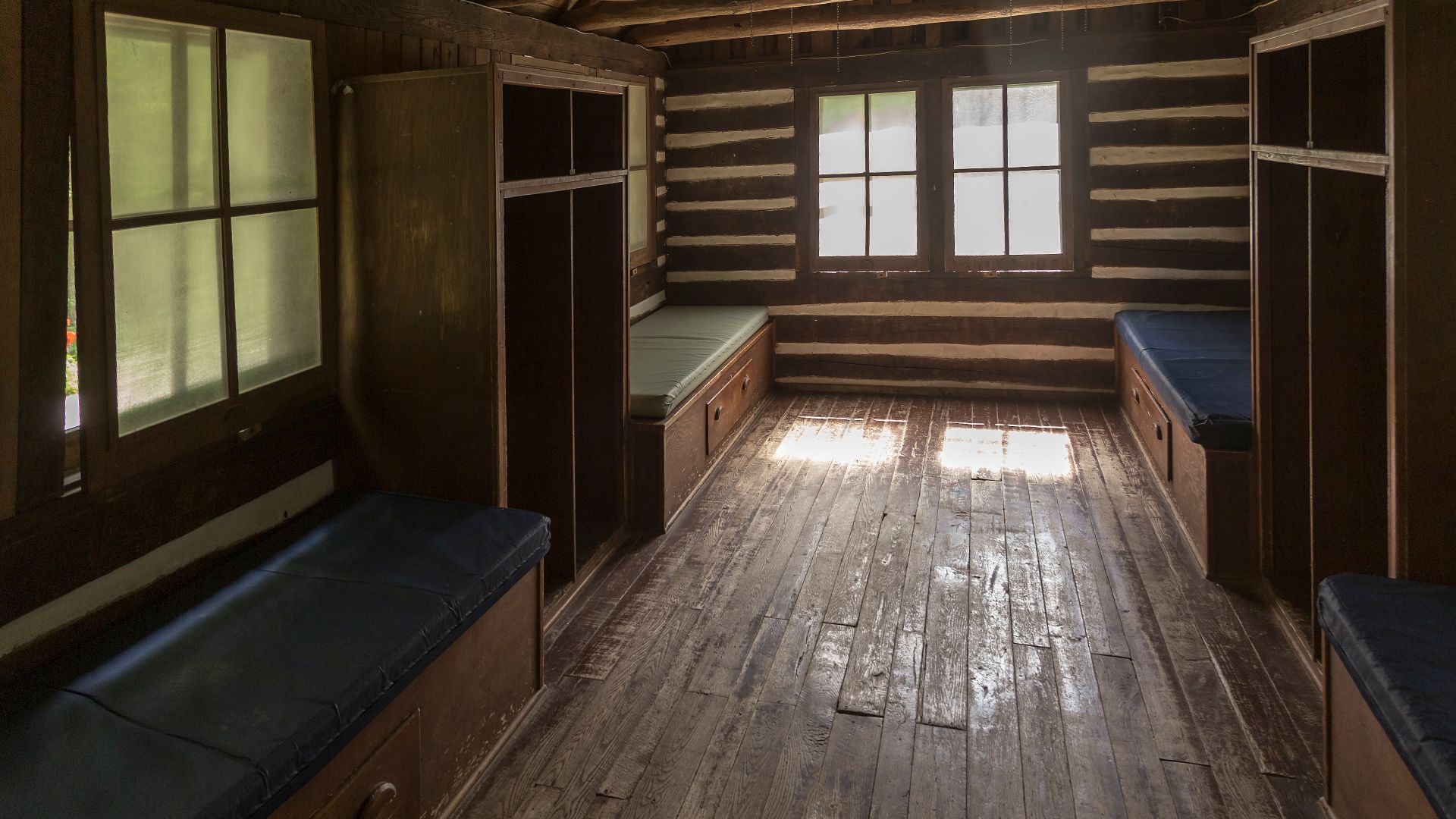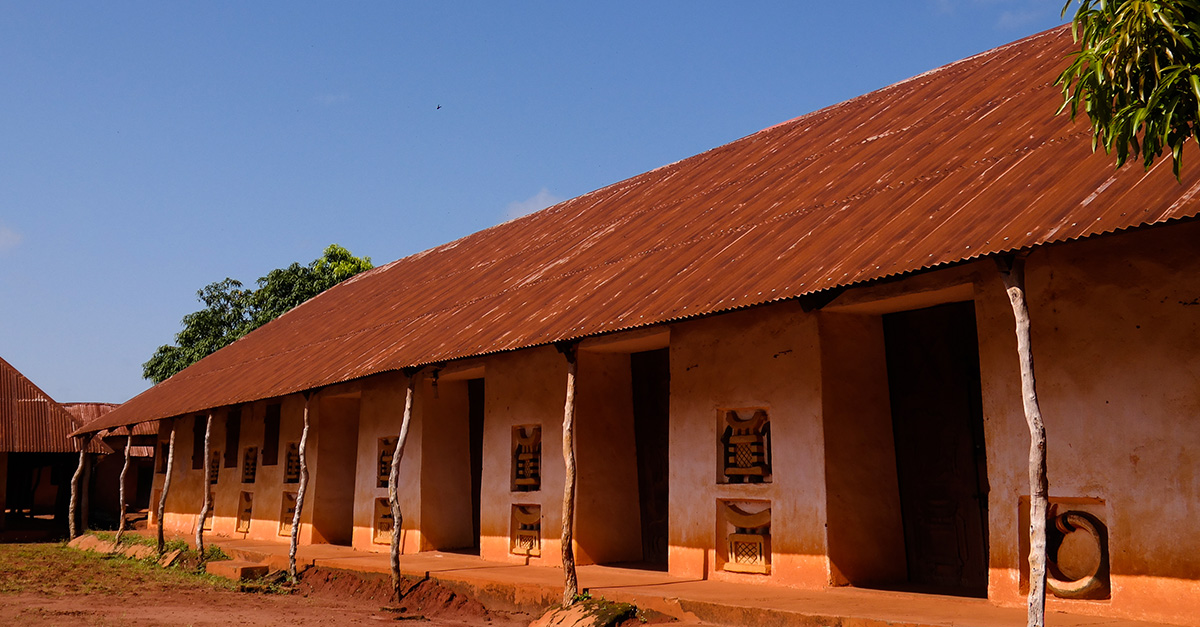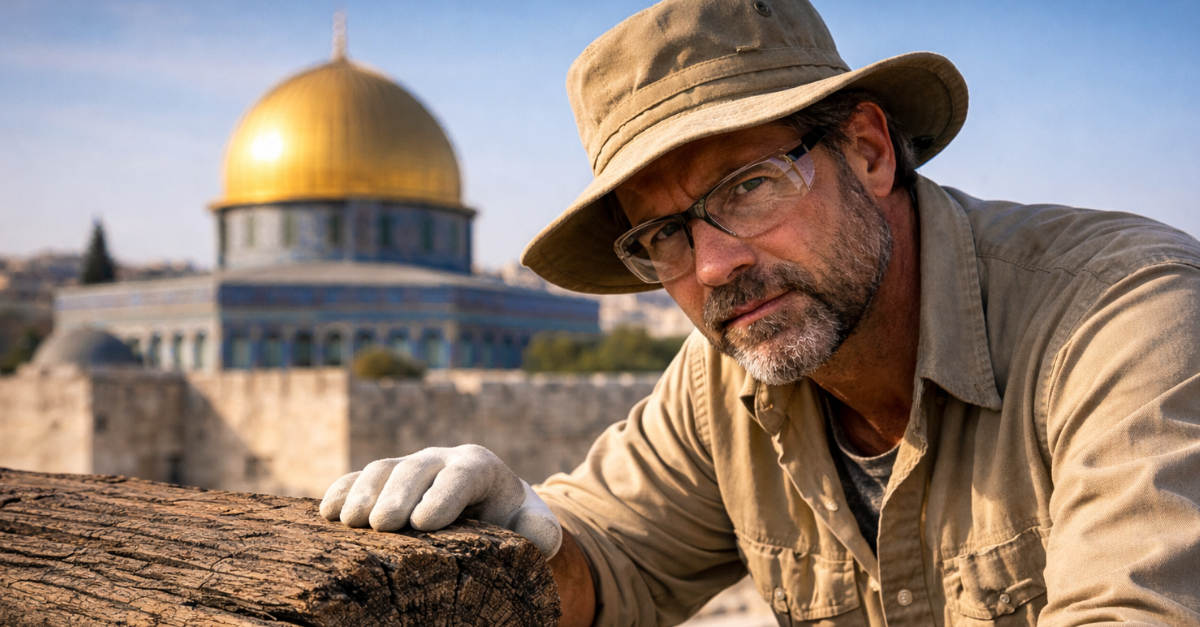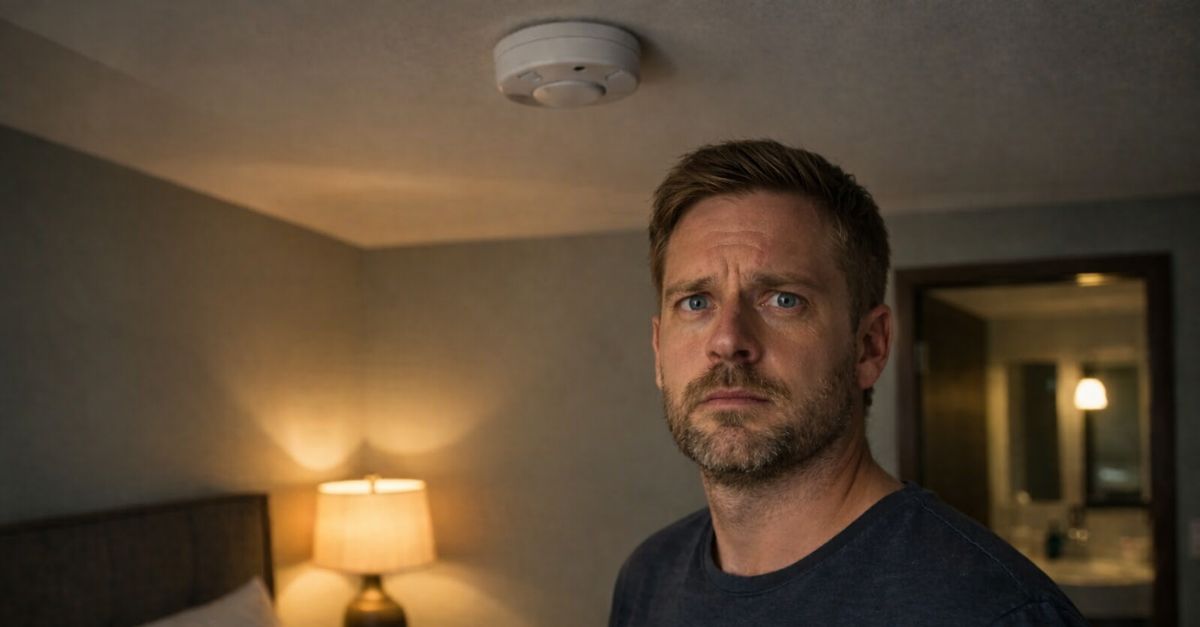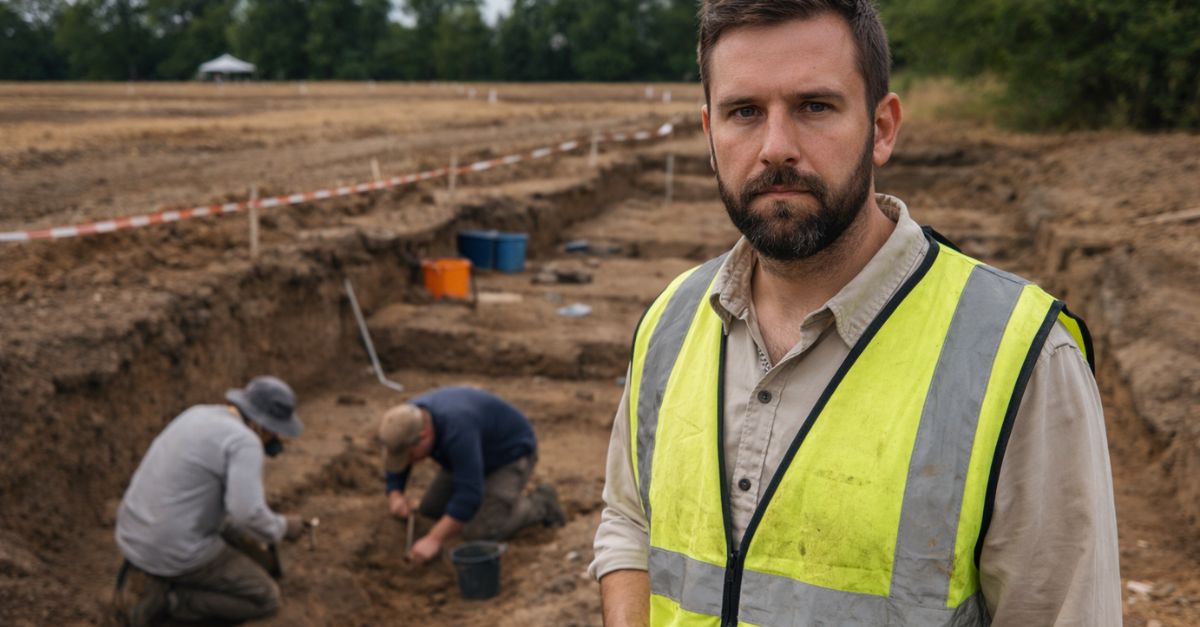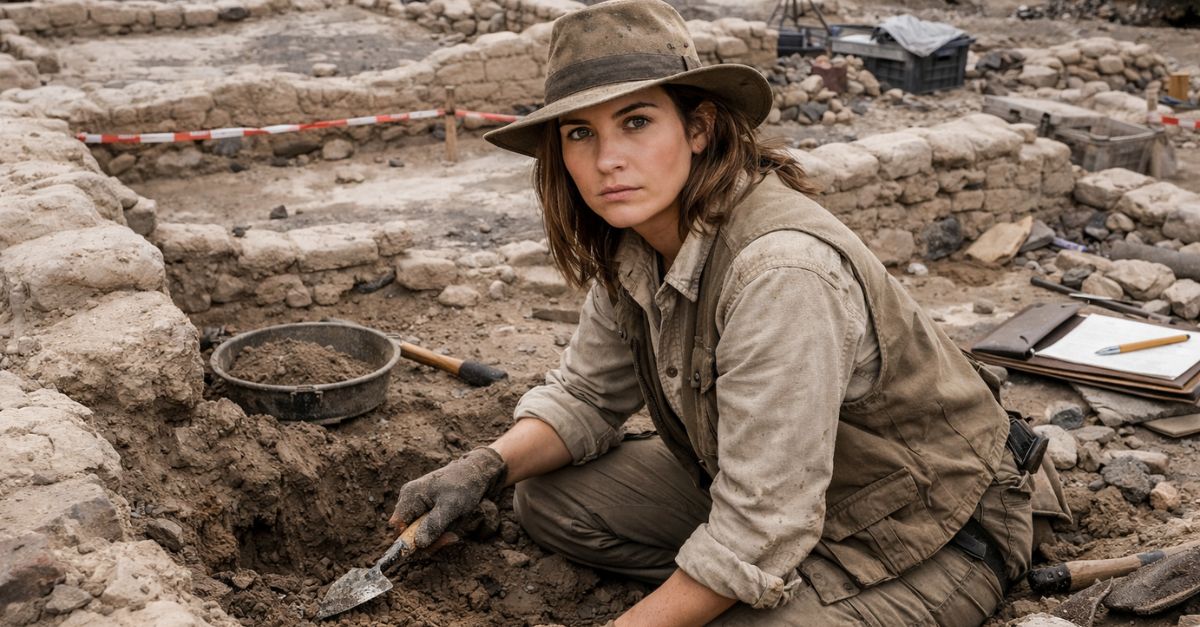It Ain't Like It Used To Be
Camp in the 1970s meant freedom—too much freedom? If you tried these once beloved camp traditions from the 70s with campers today, they'd lock you up.
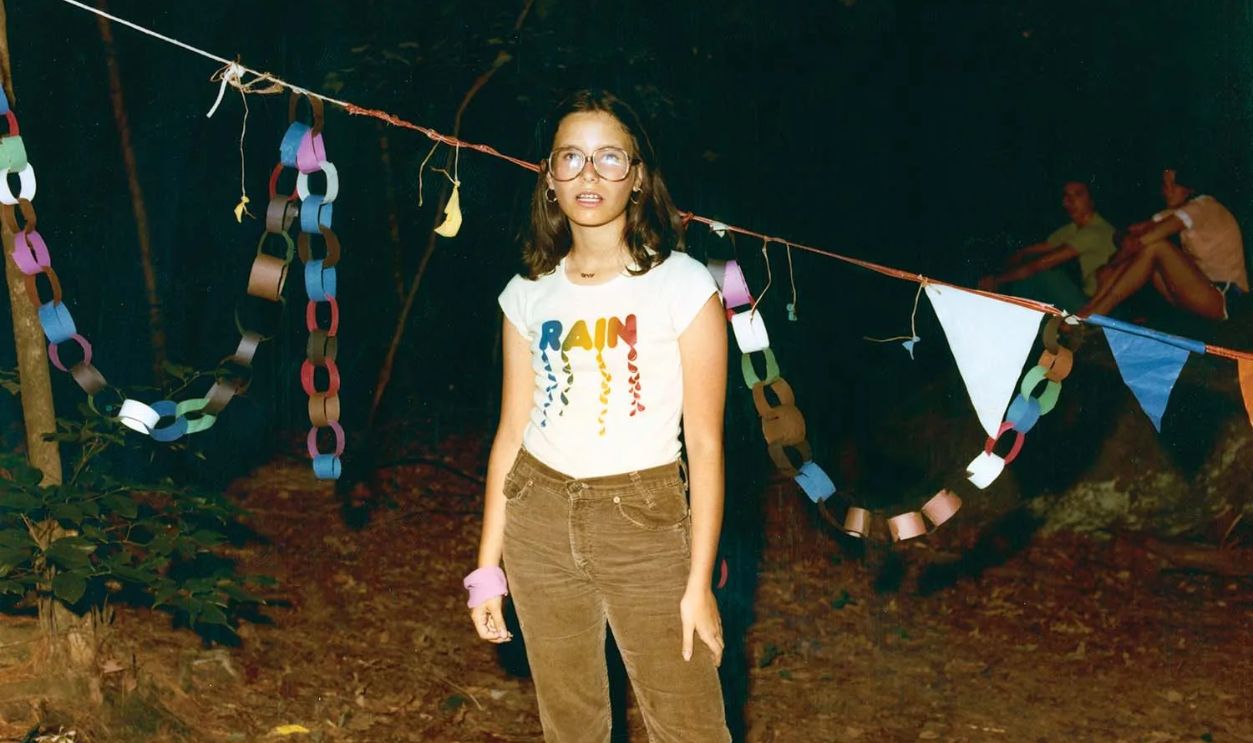
"Indian Day" With Face Paint And Feathers
Construction paper feathers and teepee crafts once filled a day at camp. Children were taught to mimic chants and act out "tribal" roles. Native groups began calling out these stereotypes in the 1980s by pushing camps to abandon these events altogether.
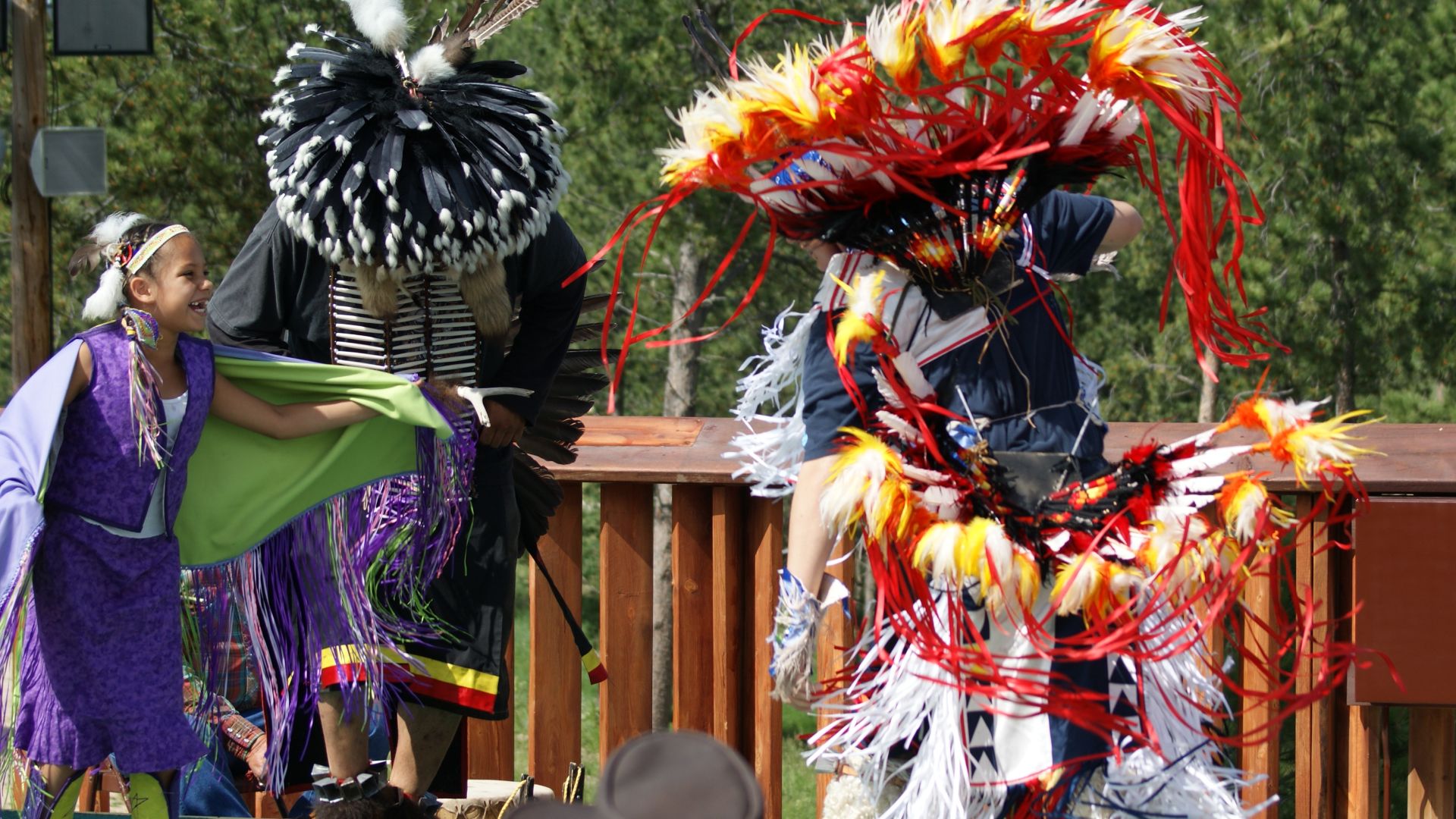 Jason_Rollette, Wikimedia Commons
Jason_Rollette, Wikimedia Commons
Kissing Games Around The Campfire
Some campers felt uneasy as others gathered for games like "Honey If You Love Me" or "Spin the Bottle". These activities were often treated as innocent fun, and staff members frequently remained silent. Eventually, concerns about consent led many camps to drop these games from their programs.
Barefoot Nature Hikes
The trails weren't gentle, and campers often came back with splinters or scrapes from hidden nails in fallen logs. Shoes had been left behind at the cabin, as staff encouraged barefoot hikes to "feel the forest." Many needed tetanus shots after summer ended.
Initiation Pranks On First-Time Campers
The first night often sets the tone for the rest of the trip. New campers were told to dig holes to "bury the flag" or sent to find imaginary animals. These tasks felt like fun to the older kids, though many younger ones quietly panicked in the dark.
Rope Swings Over Shallow Water
Tied high to overhanging branches, the rope swings became the highlight of the day. Campers flew into creeks without checking for rocks or hidden debris. Injuries happened regularly, but the swings stayed up, year after year, as if nothing serious had ever gone wrong.
 wutthichai charoenburi, Pexels
wutthichai charoenburi, Pexels
Camp Songs With Racial Stereotypes
Many 1970s camp songs were handed down by counselors who never questioned the lyrics. Lines included mock accents or references to Native customs, often played for laughs. These songs gradually disappeared as awareness of cultural respect began to influence camp programming.
Mock Weddings Between Campers
Some campers felt deeply uncomfortable, and the crowd clapped, but not everyone was smiling. Counselors often played matchmaker during closing skits, pairing kids into forced "weddings" that no one could opt out of. Today, this kind of activity would raise serious concerns about consent.
Snake Handling Demonstrations
One camper's trip to the ER was enough for several camps to permanently cancel live snake sessions. Some instructors tried to teach fear control by using wild snakes during demonstrations. These sessions often lacked permits or training, and more than one ended with a bite or a close call.
Cooking Over Fires Without Any Adults Nearby
Burns and ruined meals happened more often than anyone admitted, especially when no one was around to help. Campers cooked alone over open flames by flipping foil packets or roasting sticks. Eventually, camps introduced supervision rules and fire safety plans to reduce injuries and teach safer cooking habits.
Heatstroke Treated As A Teaching Tool
Water breaks were skipped, and hikes continued, even when kids felt dizzy or nauseous. Some counselors believed pushing through built character. But heatstroke was a real risk. It wasn't until the 1980s that camps widely adopted hydration plans and strict activity limits during high temperatures.
 All_about_people, Shutterstock
All_about_people, Shutterstock
Kids Tossed Into The Lake As A Wake-Up Call
Some mornings began with a shout and a splash. "Lake dips" involved dragging campers from their beds and tossing them into cold water, often fully clothed. Although once considered harmless pranks, these acts are now viewed as assault and are banned by camp policies.
Canoeing Without Life Jackets
A peaceful paddle on the lake didn't always come with a life jacket. In the 1970s, many camps only enforced the use of flotation gear in rougher water, while lakes and slow rivers were considered safe enough. Several drownings during camp outings eventually led to changes in the rules.
Capture The Flag Across Unmarked Terrain
Games often stretched far beyond open fields, as Capture the Flag crept into wooded areas with no boundaries and no emergency plans in place. Some campers wandered for hours, while others returned scraped up from brambles or bitten by snakes hiding under leaves.
Trust Falls On Natural Surfaces
There were no mats, and the ground wasn't always soft. Campers tipped backward off stumps into waiting arms by trusting the group to catch them. It was meant to build teamwork, but more than a few kids walked away with bruises or worse.
 eyecrave productions, Gettyimages
eyecrave productions, Gettyimages
Swimming Without A Lifeguard Present
In smaller camps, kids jumped into lakes while staff handled chores nearby. Lifeguards weren't always present, especially during free swim afternoons. At the time, certification wasn't required, but accidents in the years that followed led to new supervision rules and tighter national standards.
No Sunscreen, Just Baby Oil
Today, camps actively monitor sun protection to reduce burns and long-term skin damage. In the 1970s, tanning was a badge of honor, and sunscreen often went untouched. Campers used baby oil instead, trying to darken faster. Unknowingly, they risked severe sunburns and lasting skin damage.
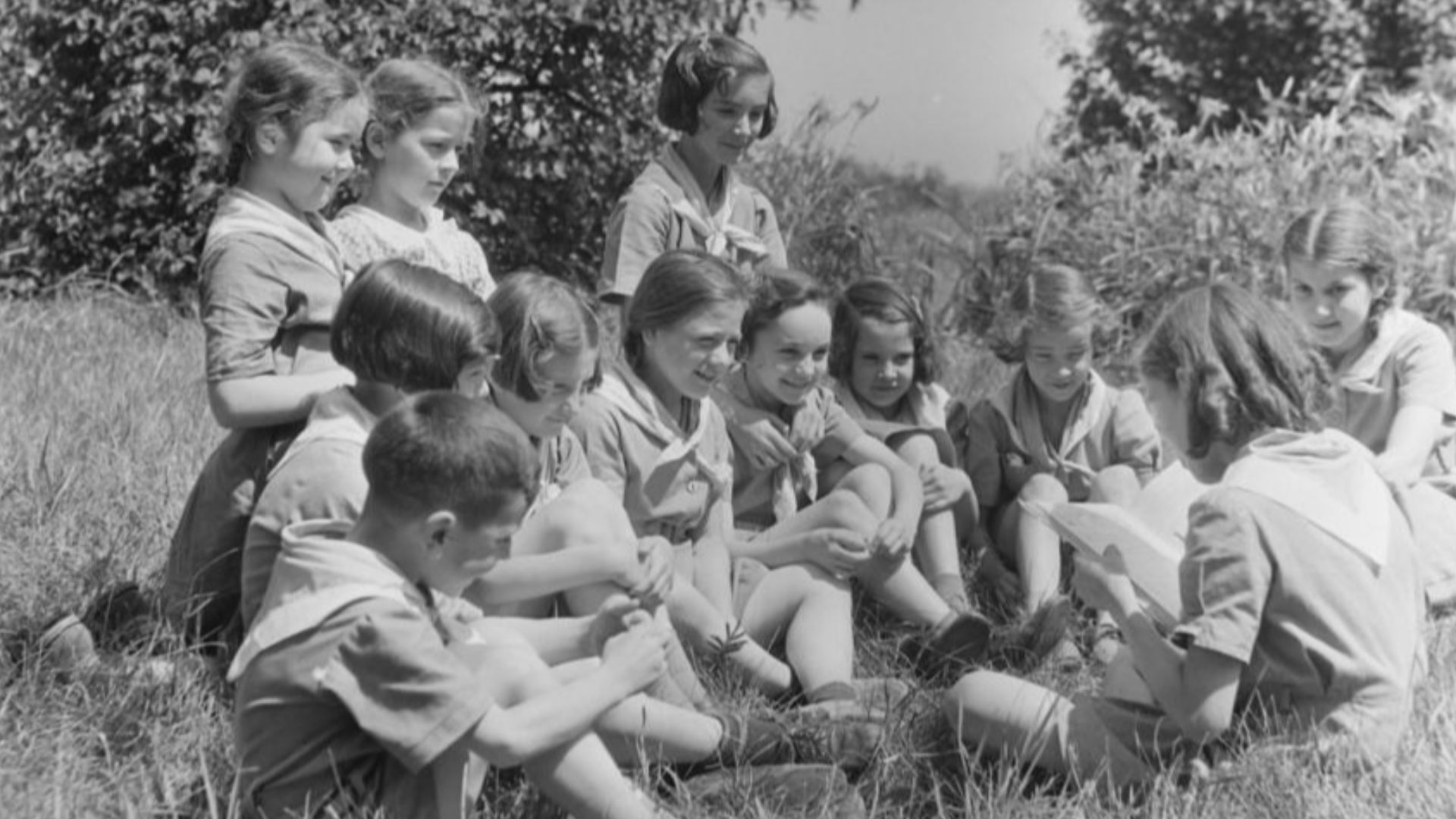 Conrad Poirier, Wikimedia Commons
Conrad Poirier, Wikimedia Commons
"Snipe Hunts" In The Woods
Snipe hunts were a prank pulled on newcomers meant to bond kids through shared confusion. Some campers got lost or scared, and the tradition quietly faded as modern safety expectations took hold. Others spent hours walking in the dark to search for a made-up creature that no one ever found.
Soap Carving With Pocketknives
Bars of soap were handed out with real knives, and kids were told to shape animals. Safety gloves weren't required and knife skills weren't taught. After repeated accidents and minor injuries, many camps decided the tradition just wasn't worth the risk.
Camp Queen And King Contests
Plastic crowns and applause once marked the end of a camp week. Judges picked winners based on popularity or how well boys could entertain a crowd. These pageants faded as camps recognized how they excluded shy kids and reinforced unfair stereotypes.
Drinking Directly From Lakes Or Streams
Kids were taught to drink straight from creeks as a survival skill, but no one warned them about Giardia or other parasites. Camps didn't test the water, and when illnesses spread, parents raised concerns. That pressure eventually led to filters and tablets becoming the new norm.
Boys-Only Fire-Building Contests
Fire-building contests mostly featured boys, while girls were usually told to watch from the sidelines. Title IX, a nationwide law enacted in 1972, required equal treatment regardless of gender in education and activities. After it took full effect, tasks like these, which were traditionally gendered, began to disappear.
Playing Doctor In Cabins
Bunk corners were quiet spots where curiosity sometimes went unchecked. Campers played doctor without guidance, and most adults didn't know how to respond. Today, camps train staff to recognize inappropriate behavior early and intervene before it escalates or harm is done.
Branding Items With Heated Irons
Burns were seen as minor, and gloves weren't offered even though the tools were hot and the smoke filled the air. Campers lined up to brand leather belts or wood blocks. After repeated injury reports, camps eventually replaced the activity with less hazardous craft options. Yakup Polat, Pexels
Yakup Polat, Pexels
No Helmets For Biking Or Horseback Riding
Winding trails and galloping fields felt like freedom, but there was no standard for head protection. Camps let kids ride without helmets, even during races. After a rise in concussions and lawsuits, safety gear rules were tightened, and helmets became part of every checklist.
Fake Kidnapping Skits
Some campers cried or froze when they heard a friend had vanished after lunch. Counselors had staged fake emergencies to build suspense and excitement. Although the skits were planned as harmless fun, safety advocates later pushed for bans on fear-based games at youth camps.
Sleep-Depriving Night Watches
Today, staff are trained to protect rest and reduce unnecessary stress. At some camps, kids stayed up for night watch shifts to guard cabins from made-up threats. What began as an exciting task often led to cranky mornings and tension, especially when sleep loss piled up quickly.
Group Punishment For One Camper's Mistake
Psychologists flagged grouped punishments as emotionally harmful to developing minds. One camper's mistake could result in the entire cabin losing privileges, such as swim time. Some turned on the rule-breaker, while others grew resentful. The lesson about unity often backfired in unpredictable ways.
Fake Scary Letters Sent To Younger Campers
New campers sometimes cried through the night after finding creepy letters hidden in their shoes or under their pillows. Older kids had planted them as part of a prank. What began as a joke raised real concerns. This prompted camps to start monitoring all written communication between campers.
Unsupervised Overnight Tent Setups
Campers were sometimes sent to pitch tents far from the main site, with no adults nearby. They had no check-ins and no backup plan in case things went wrong. Today, overnight trips require close supervision and strict camper-to-adult ratios to prevent safety risks.
Campfire Intimidation Labeled As "Toughening Up"
Campers had to laugh along, even when the jokes felt personal. When anyone pushed back, the teasing often escalated. What started as fun usually turned sour, and discomfort lingered long after the campfire burned out. Many camps have since replaced campfire intimidation with respectful, team-focused activities.
Chubby Bunny And Other Gagging Games
"Chubby Bunny" challenged campers to speak while holding more marshmallows in their mouths. It spread through camps in the 1970s, but choking cases soon followed. Several incidents led to bans, and the game is now featured in CPR training as a real-world example of preventable risk.
Jumping Off Docks Into Unknown Waters
Most camps now require swim areas to be cleared and supervised at all times. Campers once dove off docks without knowing what hid beneath the surface. The cheers rang out loud, but some landed on rocks or submerged logs and left the water with serious injuries.
Unlimited Canteen Sugar Runs
As nutrition standards changed, camps began to cap sugar access and introduce healthier snacks into their daily routines. Before that shift, campers lined up for candy and gum with no limits. Some consumed extreme amounts, and staff rarely intervened unless the sugar rush disrupted evening activities.
Tolerance For Zippo Lighter Tricks
Some campers brought lighters to show off tricks, such as fire snaps or hand passes. These stunts, often part of skits, thrilled bunkmates but sometimes caused burns. As rules tightened, lighters were banned entirely, and only staff could handle fire-starting tools for official activities.
Daring Kids To Enter Abandoned And "Haunted" Buildings
Some kids were dared to step alone into unstable buildings or wait silently in dark corners. Dim lighting and isolation often turned dares into dangerous situations with real consequences. Camps eventually shut down these thrill-seeking hikes due to growing safety concerns and liability risks.
Counselors Using Silent Treatments
Some counselors went quiet for hours and refused to speak to misbehaving cabins. The silence was meant to teach respect, but it confused kids instead. Training today emphasizes open dialogue and emotional support, replacing cold withdrawal with approaches that help children understand their behavior.
Tug-Of-War Over Rocky Terrain
Kids raced for footing as the rope hit the ground, often slipping on gravel or hard dirt. Bruises and sprains were common, but the surface was rarely questioned. Updated safety rules now require the use of soft grass or mats to protect players and promote safer competition.
Horseplay In Moving Canoes
After several accidents, camps began treating horseplay on the water as a serious safety risk. Tipping canoes had become a prank that drew cheers from the shoreline. Yet life jackets weren't required, and deep water hazards went unmentioned until consequences made it impossible to ignore.
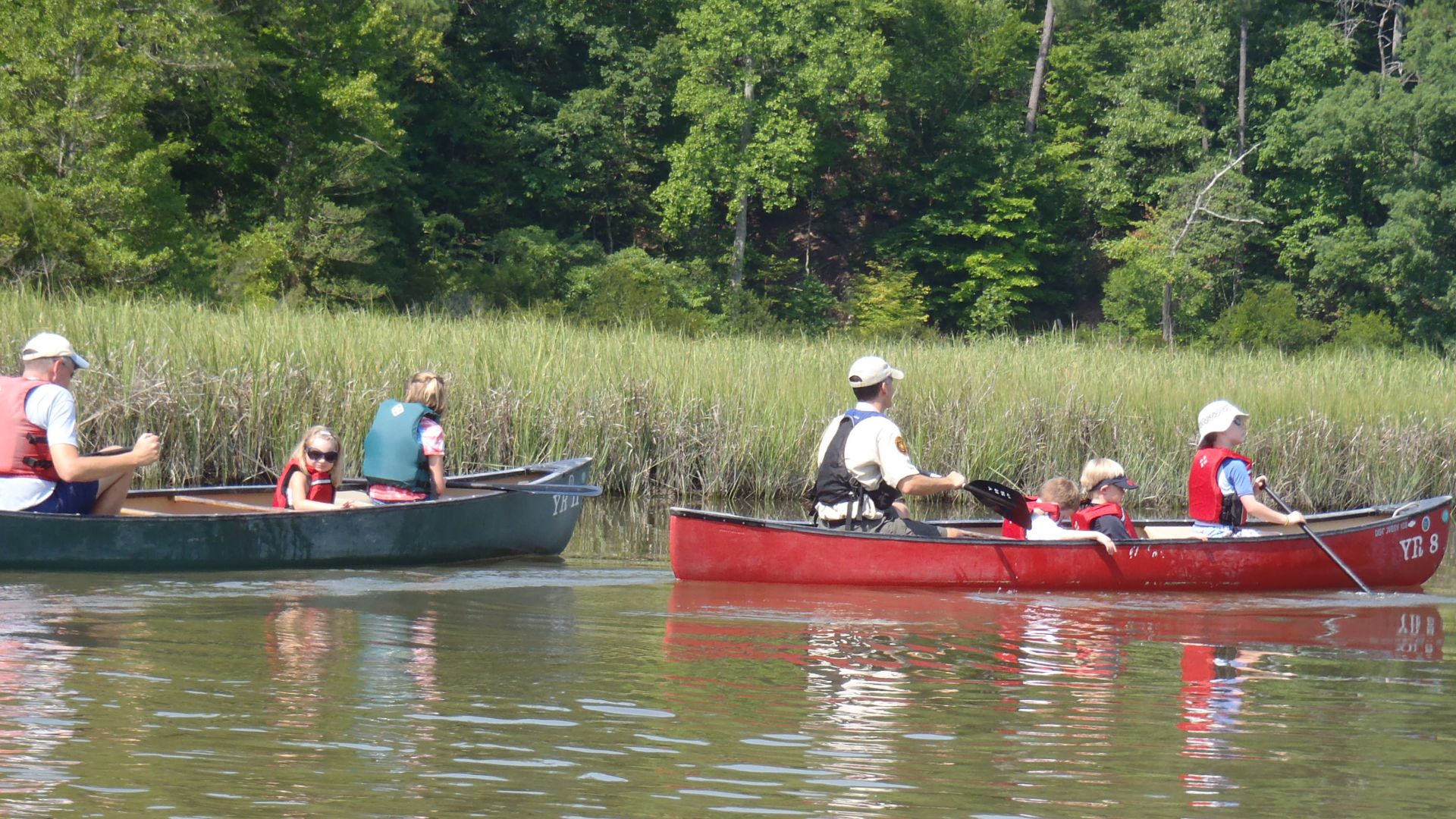 Virginia State Parks staff, Wikimedia Commons
Virginia State Parks staff, Wikimedia Commons
Writing Fake Obituaries In Bunk Books
Bunk books sometimes featured fake obituaries that claimed campers had disappeared or met ridiculous fates. These entries were read aloud as jokes on the last day of camp. The intent was humor, but the impact often crossed into humiliation or fear for younger campers.
Public Weigh-Ins For Cabin Contests
Camps used the weigh-ins to assign teams or hand out prizes. Kids stepped on scales in front of peers, and few adults stopped to consider how that might feel. Wellness policies eventually banned public weigh-ins by recognizing how easily they triggered shame and unhealthy competition.
Encouraging Campers To "Tough Out" Injuries
A scraped knee or upset stomach didn't always earn a trip to the nurse. Staff told kids to tough it out and finish the day. However, delays in care sometimes make things worse, and current guidelines now consider prompt medical attention a non-negotiable priority.
Making Kids Sing For Lost Items
Campers who lost items had to sing or dance in front of others to retrieve them. Though the crowd laughed, many kids left the spotlight feeling more humiliated than amused. Camps eventually banned these practices due to the pressure and embarrassment they created.
Campers Carrying Around Dead Insects Or Animal Parts
Nature badges once encouraged the collection of insects or bones, even if they came from dead animals. Few precautions were taken, and kids carried their "finds" in pockets or backpacks. Camps today now require sealed containers, staff supervision, and guidance on safe wildlife interaction.
Building And Racing Homemade Go-Karts
Campers once raced down hills in carts built from scrap wood and rope, often without brakes or helmets. They worked together with little guidance, eager to test what they'd created. After repeated crashes and close calls, camps either introduced safety rules or dropped go-kart racing from the program.

